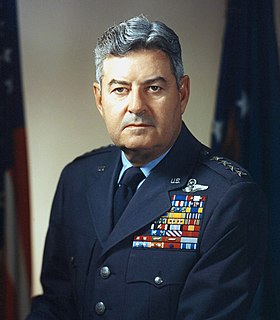A Quote by Jimmy Carter
On both of my major trips to North Korea, the leaders of the country made it plain that they want to make progress towards doing away with nuclear weapons and towards ending the longstanding, official state of war which persists between North Korea and the United States and South Korea, a war which has continued since the ceasefire over fifty years ago. That sort of thing happens quite often when we meet with people who are kind of international outcasts with whom the government of the United States won't meet.
Quote Topics
Away
Between
Both
Ceasefire
Country
Doing
Ending
Fifty
Government
Happens
International
Kind
Korea
Leaders
Made
Made It
Major
Make
Meet
North
North Korea
Nuclear
Nuclear Weapons
Official
Often
Over
People
Plain
Progress
Quite
Since
Sort
South
South Korea
State
States
Thing
Towards
Trips
United
United States
Want
War
Weapons
Which
Whom
Years
Years Ago
Related Quotes
This is a good deal for the United States, north Korea will freeze and then dismantle its nuclear program. South Korea and our other allies will be better protected. The entire world will be safer as we slow the spread of nuclear weapons. The United States and international inspectors will carefully monitor North Korea to make sure it keeps its commitments. ...Only as it does, so will North Korea fully join the community of nations.
During the periods when South Korea played a more active role, the inter-Korean relationship was more peaceful, and there was less tension between the United States and North Korea. The last U.S. administration pursued a policy of strategic patience and did not make any effort to improve its relationship with North Korea. Also, the previous Korean government did not make any such efforts. The result is the reality you see today - North Korea continuing to advance its nuclear and missile program.
The North Korean regime remains one of the world's leading proliferator of missile technology, including transfers to Iran and Syria. The transfer of nuclear weapons or material by North Korea to states or non-state entities would be considered a grave threat to the United States, and we would hold North Korea fully accountable of the consequences of such action.
I think the regime in North Korea is more fragile than people think. The country's economic system remains desperate, and one thing that could happen for example would be under a new government in South Korea, to get the South Korean government to live up to its own constitution, which says any Korean who makes it to South Korea, is a Korean citizen. A citizen of the Republic of Korea. And you could imagine the impact that would have inside North Korea if people thought, "If I could get out and make it to South Korea, I could have a different life."
China is ruthlessly pragmatic. It supports North Korea for its own selfish interests. And I believe that China no longer considers us an ally. The current president, Xi Jinping, cultivates close relations with South Korea. He has never met with me, the leader of North Korea, something that the leader of China has always done. At the grand celebrations in Beijing two years ago commemorating the 70th anniversary of the end of World War II, he placed the president of Russia and the president of South Korea at his side. In North Korea, we pay a lot of attention to ceremonies and what they signal.
We went over there and fought the war and eventually burned down every town in North Korea anyway, someway or another, and some in South Korea too. Over a period of three years or so, we killed off - what - twenty percent of the population of Korea as direct casualties of war, or from starvation and exposure?
Living with a nuclear North Korea could give its leaders the confidence to act more aggressively versus South Korea. It could also, over time, drive both South Korea and Japan, as well as countries farther afield such as Vietnam, to reconsider their non-nuclear postures. The stability of a critical region of the world would suddenly be in doubt.
To say that the United States has pursued diplomacy with North Korea is a little bit misleading. It did under the Clinton administration, though neither side completely lived up to their obligations. Clinton didn't do what was promised, nor did North Korea, but they were making progress. So when Bush came into the presidency, North Korea had enough uranium or plutonium for maybe one or two bombs, but then very limited missile capacity. During the Bush years it's exploded. The reason is, he immediately canceled the diplomacy and he's pretty much blocked it ever since.





























